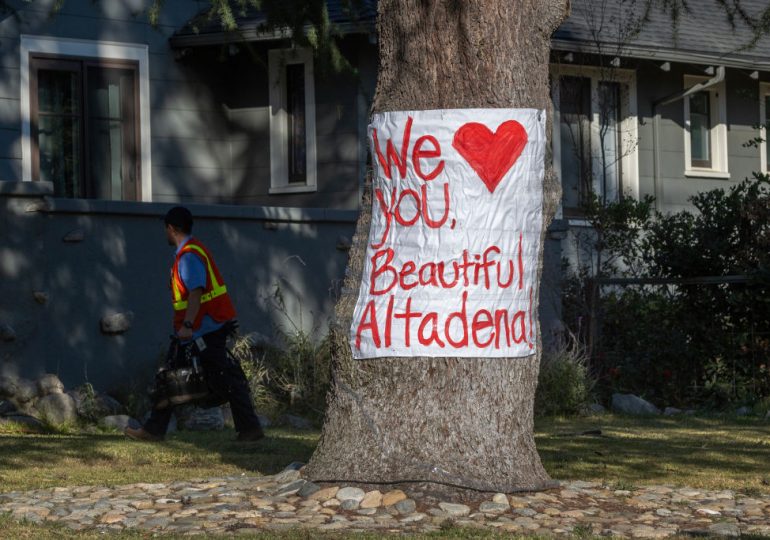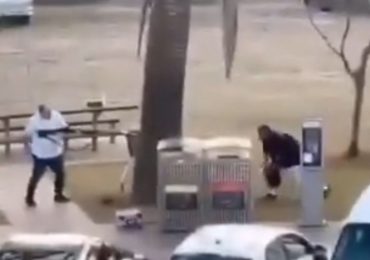The wildfires that are currently devastating Los Angeles are not just a natural disaster; they are a multi-faceted crisis that will reverberate through the city’s economic, emotional, and social fabric for years to come. Even when the flames are extinguished, their impact will remain—leaving thousands displaced, jobs lost, and a sense of stability shaken.
[time-brightcove not-tgx=”true”]
As we take a collective breath to assess the damage thus far, we must ask ourselves the same question Dr. Martin Luther King Jr. posed in a time of great upheaval: “Where do we go from here?”
The L.A. wildfires have revealed fractures in our city’s systems that were already under immense pressure. This isn’t just one crisis—it’s a cascading series of crises that demand creative, multi-faceted solutions.
Here’s what we must solve together
The consumer-economy crisis: Before the fires, approximately 70% or more of Angelenos were already living paycheck to paycheck. This fragile reality has now collapsed for many. The service industry, which employs housekeepers, drivers, landscapers, and small business owners, has come to a screeching halt. No jobs. No income. No immediate path to recovery.
The cost-of-living crisis: Supply and demand have skyrocketed the cost of essentials. Hotels, rental homes, and even basic groceries are now more expensive than ever, stretching already-thin budgets to a breaking point. The cost of living in Los Angeles was 50% higher than the national average before this crisis hit my birth home city. In the short term, things will only get worse, around affordability.
The emotional crisis of confidence: Trust has been eroded—not just in leaders, but even in basic systems and emergency services, like an assurance that your local fire hydrant will work. People feel abandoned or unprepared, amplifying the emotional toll.
The “Independent Parent” crisis: Many who once prided themselves on independence are now forced to move in with children or loved ones. The emotional weight of losing that independence is difficult to quantify, but its impact is profound.
What to Do If You’re in Crisis
If you find yourself navigating this overwhelming reality, the best advice is simple: Don’t go it alone. Talk to someone who has no agenda—whether it’s a financial counselor, a trusted advisor, or a local nonprofit. These individuals can help you avoid costly mistakes.
Don’t Act on Emotion: Selling a home or making significant decisions under duress can lead to regret. Pause, seek advice, and understand your options. Don’t sell and don’t settle. Never make an emotional decision. These moments demand thoughtful, informed choices—ones that you won’t regret later. There will be a lot of predators that will emerge in these times, trying to separate survivors from their wallets.
How We Can Help Each Other
Recovery isn’t something we can achieve in isolation. This is a moment for neighbors, communities, and institutions to come together.
Help your neighbors. Consider opening your home through platforms like Airbnb—offering displaced families a safe and temporary place to stay. A simple act of generosity can be a lifeline.
Read More: How to Help Victims of the Los Angeles Wildfires
Volunteer your expertise: Organizations like Operation HOPE, in partnership with FEMA and DHS, are providing essential services through programs like HOPE Inside Disaster and tools like the Emergency Financial First Aid Kit (EFFAK). The EFFAK helps families organize critical financial documents and resources in preparation for or recovery from a disaster. We can connect skilled volunteer professionals with survivors, offering free financial counseling to navigate the complex road ahead.
We need bold, collaborative leadership to address the immediate needs and long-term systemic failures that have made this crisis so devastating.
Here’s what that looks like
Strengthening preparedness: All cities and communities must invest in better disaster readiness, from improving early warning systems to ensuring emergency shelters and support networks are accessible to all. All Americans should invest time in “Individual Preparedness” for potential future events including things like (1) creating a financial plan, (2) having an emergency go bag, (3) developing emergency evacuation routes and family communication plans, and (4) starting or growing an emergency savings plan (unlike the 60% of Americans who don’t have $500 for an emergency), as just a few critical steps.
Economic support for vulnerable workers: Targeted programs must be developed to help service industry workers and small businesses rebuild their livelihoods. This could include emergency grants, zero-interest loans, or job training for displaced workers.
Affordable housing initiatives: The fires exacerbated an already dire housing crisis. We must push for affordable housing reforms to ensure displaced families aren’t permanently locked out of the housing market.
Community-led solutions: Grassroots efforts, combined with public-private partnerships, are key to rebuilding trust and creating equitable recovery plans.
The crisis in Los Angeles is profound, but it is not insurmountable. This city has always been a beacon of resilience and re-invention and we have the tools to rise again.
But recovery will not come from waiting. Whether through generosity, expertise, or advocacy, every Angeleno has a role to play in rebuilding our city. Rebuilding won’t take days, weeks, or months but rather years and therefore we must keep our attention focused not only on the immediate but also on the medium-term and long-term needs of those impacted by the fires so that lives, businesses, and communities can come back and be even stronger and more resilient than before.
The time for action is now. And the solutions—creative, bold, and compassionate—are in our hands.
Leave a comment








